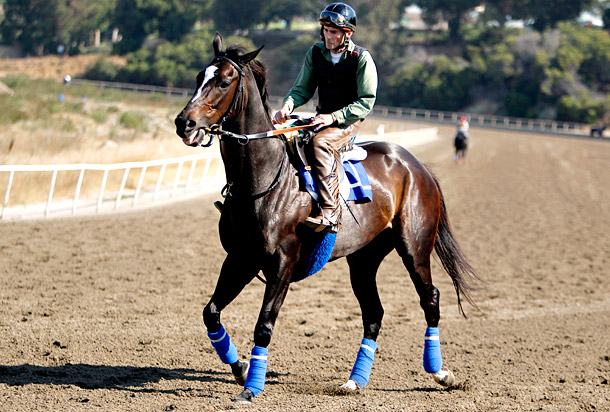Just hours after posting my last blog, in which I wrote about the two most common tacks folks take when trying to reconcile the irreconcilable (revisionist or apologist), the presumtive Republican nominee for November's presidential election has bolstered my point.
Nearly 50 years after the fact, Mitt Romney is apologizing for doing some "dumb things" while he was in high school. Romney claims to have no recollection of an incident in which he is alleged to have pinned down a fellow student and forcibly cut off the boy's long hair. The boy in question, John Lauber, is deceased. Former classmates describe him as having been "quiet and offbeat". John Lauber was also gay. But while Romney remembers Lauber, he says he "didn't think the fellow was homosexual." Adding "that was the furthest thing from our minds back in the 1960's."
Based on the little I know so far, I can conclude one of two things:
1) Either the frequency of such attacks were so commonplace when Romney was in high school that the "prankster" (as the
Wall Street Journal sweetly dubbed Mittens) couldn't possibly be expected to remember each and every infraction
or
2) Mitt Romney is a Giant Toddler
The Giant Toddler (GT) is a grown-up whose emotional intelligence is akin to that of a chronological toddler. They tend to impose themselves upon their environment instead of making an effort to minimize their footprint in public places. Whether owing to a lack of coordination, not having been properly socialized, or being immune to consequences they literally and figuratively throw their weight around with little regard for any damage left in their wake. Not only is their comfort and peace-of-mind a primary consideration for the GT: it is also directly proportionate to their disregard for your comfort and peace-of-mind. The very traits that adults find so charming in actual toddlers become insufferable once the subject crosses the thresh hold of 3'6". In short, GT's are oblivious, clueless and obnoxious.
My first encounter with a GT took place in Middletown, CT on my first day of classes at Wesleyan. The school had a reputation for sheltering a "hotbed of left-over hippies from the 60's": a distinction we bore proudly. Wesleyan was a place where idealism was pervasive; students were at the vanguard of the political-correctness movement (I mean this in the
best way possible. As anyone who has ever had to integrate their school, neighborhood or church can tell you: good manners are always appreciated!); and posters urging us to "END APARTHEID!!!"... "DIVEST NOW!!!"... or attend a "TAKE BACK THE NIGHT" rally were ubiquitous. Which is why the GTs inevitably stood out like sore thumbs.
The class was
English 101 and our new professor, Robert O'Meally, was bookish, bespeckled, tall, dark and handsome: think Barack Obama-as-law-school-professor and you'll get the picture! Approximately 15 students were seated around the perimeter of tables set up in a quadrangle as Mr. O'Meally introduced himself and welcomed us to Wesleyan. And that is when the young man seated to my soon-to-be-favorite-professor's immediate left leaned back and propped his feet up on the table. The almost imperceptible quadruple-time beating of Mr. O'Meally's eyelids was the only indication that something was awry as he carried on in his unflappable manner.
I can still see the GT's weight balanced on the hind legs of his chair, hands clasped behind his head, elbows akimbo, legs outstretched and crossed at the ankles, with his grubby Timberland boots a mere foot away from Mr. O'Meally's face. In any language, this boy's posture screamed "I'm just chillin'..." This, while the rest of us were doing our level best to make a good first impression and not draw any negative attention to ourselves.
Had I entered the classroom at that precise moment I would have done a double take and exited promptly: certain that I'd accidentally stumbled into
Shoemaking for Dummies, or
How to Lose Friends and Encourage Your Professor to Assume You're a Moron, or
Have You Lost Your Damned Mind?! 101. Who was this person? Even to my uninitiated eyes it was obvious that he had no clue that he was being totally inappropriate. In fact, if I were a betting woman I'd wager that he probably doesn't even remember a day that has been seared into my memory with crystal clarity.
Hmmm... sound familiar?
While this would be my maiden voyage into the Land of GT's, unfortunately, it was not to be my last. Within months of living at Wesleyan I noticed a pattern. As rare as charges of racism, misogyny and hazings-gone-bad were on campus, it slowly dawned on me that Ground Zero for such shenanigans was the Delta Kappa Epsilon, DKE (pronounced "Deke") fraternity house. And that, invariably, whenever the pledges were reprimanded by the administration-- their hanging a super-sized confederate flag from a 2nd story window of their Own Private Animal House comes to mind-- the frat brothers would publish an apology in the school newspaper and offer up chestnuts about "harmless pranks", "hijinks" and how "boys-will-be-boys."
Pranks?!
Hijinks?!
I'd only heard such language during the Looney Tunes cartoons I couldn't get enough of as a kid on Saturday mornings. But there was nothing funny about such lame excuses rolling off the tongues of these presumed future-leaders. (The fact that I've yet to hear anyone, anywhere, at anytime excuse the antisocial behavior of any young black man as a "prank" or a "hijink" also sticks in my craw, but let's save that double-standard for another blog.)
I find it offensive when people like Mitt Romney don't have the courtesy (or, is it courage?) to at least use adult language when making amends for actions that have obviously traumatized others. Particularly their victim is left feeling humiliated, intimidated and/or marginalized. In fact, there's a word for big guys who routinely take advantage of their size, position and perceived power to make the lives of smaller guys miserable. And if Mitt Romney doesn't know what that word is, I've no doubt that a visit to any kindergarten class ought to clear up any misconceptions he may have surrounding the definition of the word "bully."
Then again, maybe I've got it all wrong and Mitt is not such a bad guy after all. Maybe the possible future-president of the United States is simply a Giant Toddler.

























